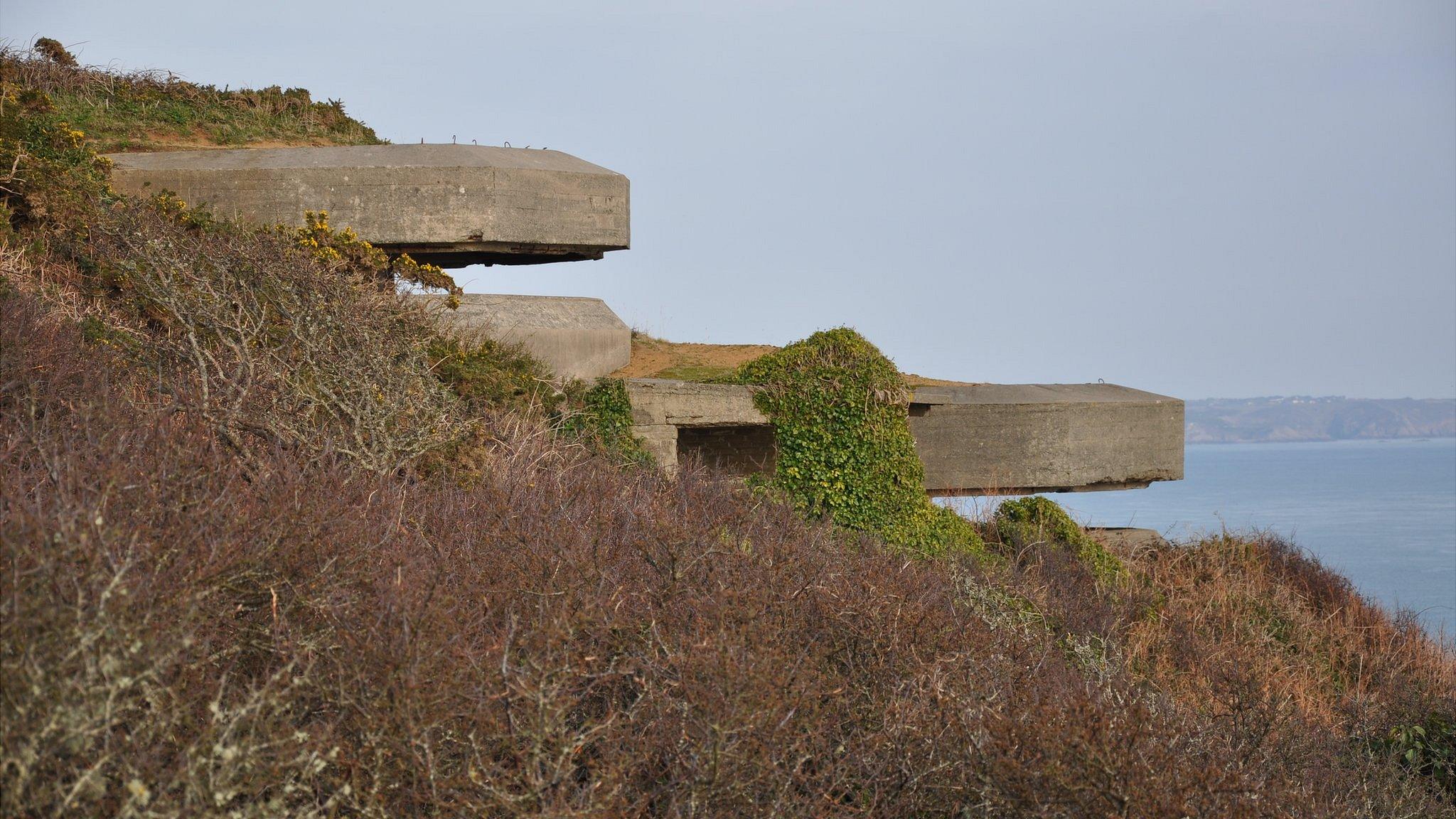Operation Hardtack: Britain's botched WW2 Christmas raids
- Published
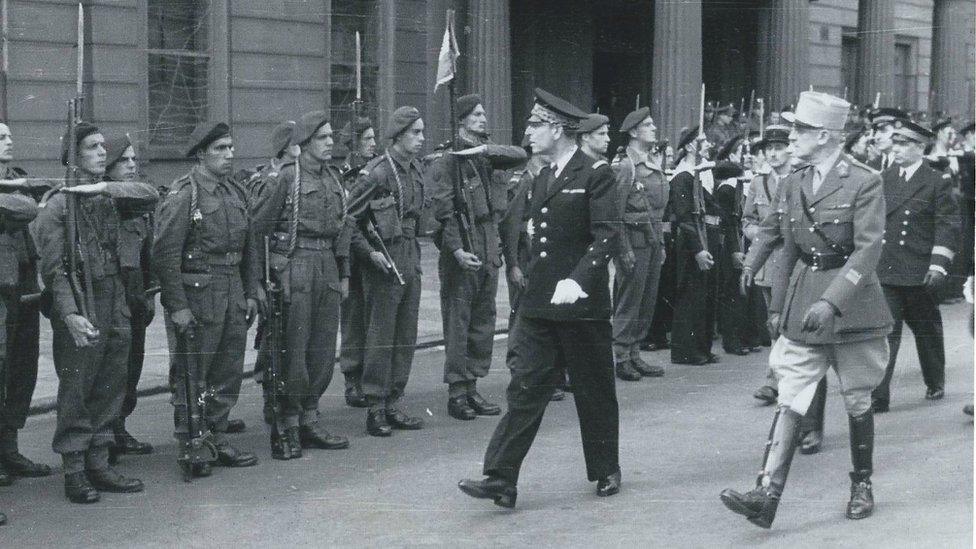
Commandos from all across Europe served in the British-led operation, including French, Dutch, Belgian, Norwegian and Polish troops
As people tucked into their Christmas lunches 75 years ago, an elite fighting force was embarking on a series of dangerous wartime raids across the English Channel.
Operation Hardtack secured valuable information ahead of D-Day, but it would also claim the lives of 13 men, some fatally wounded by German mines.
Abandoned for fear of jeopardising the 1944 landings, some historians have argued daring commando raids on the Channel Islands, in particular, achieved little.
But less than a year after the Christmas operation Paris had been liberated and the Allies were advancing on Germany.

Large areas of the Channel Islands were mined by the occupying German forces
Information gathered by the commandos of Hardtack 21 around the French town of Quinéville may have played a small part in a key turning point in the liberation of Europe.
The operation provided vital observations on Nazi coastal defences around what would become known as Utah Beach, one of the landing sites on the French coast during D-Day in June 1944.
On Utah Beach 20,000 troops and 1,700 motorised vehicles landed, with fewer than 300 casualties.
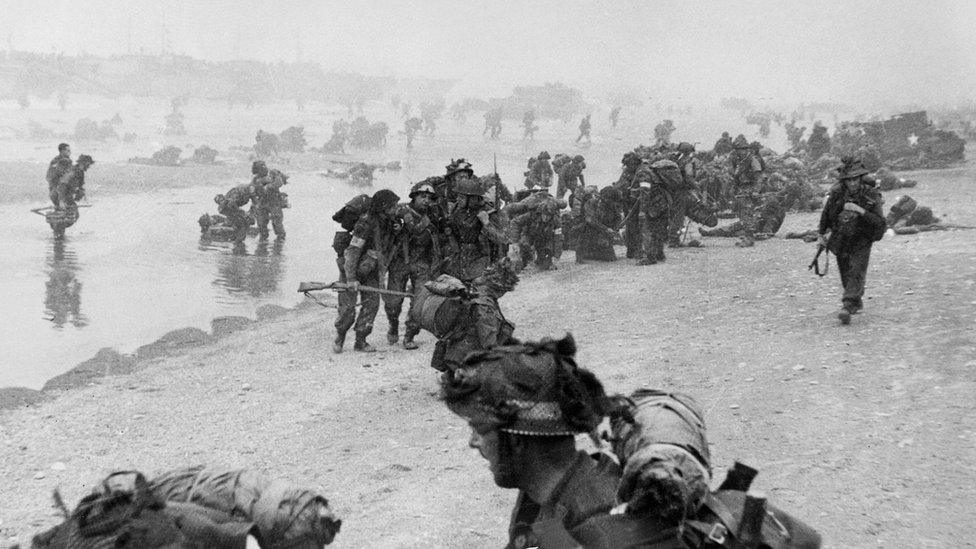
British troops wade shoreward in France on D Day
Historian Will Fowler has suggested the nine raids as part of operation Hardtack and prior assaults on Nazi-occupied Jersey, Guernsey and Sark served another purpose.
The raids "though modest but costly in human lives and disruptive to islanders," Fowler wrote in his 2016 book The Last Raid, "kept Hitler focused on the defence of the islands and so ultimately proved worthwhile".
In 1943 German Field Marshall Erwin Rommel wanted the islands to be evacuated with the idea of redeploying the occupying 319th Infantry Division to the Normandy coast.
But he was overruled by Hitler - the 9,000 infantry, supporting artillery, and trained tank crews would stay put, cut off, where they would eventually surrender in May 1945.

Jersey's coast was heavily fortified as part of Hitler's Atlantic Wall
The Hardtack missions to the islands were far from a success for those involved, injuring many and claiming the lives of three commandos.
In her controversial 1995 book The Model Occupation, Madeleine Bunting wrote island raids "achieved nothing more than a few scraps of information, but they had very serious consequences for islanders".
An earlier Guernsey incursion led to the deportation of a senior politician, a Sark operation resulted in further deportations to Nazi camps, and were perceived as "futile" and "provoked anxiety", she wrote.
Earlier raids had at least yielded prisoners and some useful information for the Allies, but the Christmas 1943 raids planned on Herm, Sark and Jersey would prove less fruitful.

The occupation of the Channel Islands
28 June 1940, the Luftwaffe bombed Jersey and Guernsey, unaware that the islands were undefended, killing 44 people
30 June - 25 July 1940, German forces occupy Guernsey, Jersey, Sark, Alderney and finally Herm (although troops were not stationed there)
6 June 1944, following the D-Day landings food lines cut between the Channel Islands and German-occupied France
The Red Cross ship SS Vega begins delivering food parcels as the islands begin to starve
8 May 1945, VE Day, but German forces do not yet surrender
9 May 1945, Liberation Day, unconditional surrender signed by German command in the Channel Islands

On Christmas Day 1943 one of the of the nine Hardtack raids in a four-day period embarked for Jersey, at that stage occupied by Nazi Germany for two and a half years.
Leading the team of six that evening was Capt Philip Ayton, a 22-year-old Londoner of the Argyll and Sutherland Highlanders, Special Boat Service.
The commandos moored off Jersey's west coast aboard their motor gunboat, before rowing to shore under cover of darkness.
Scrambling up cliffs, they made their way to a farm, startling its inhabitants in their camouflage and with their sub-machineguns.
After calming the nerves of brothers Hedley and John Le Breton, the commandos were told there were about 1,000 German soldiers stationed on the island.
After a glass of milk, they led the elite soldiers to a nearby German strongpoint.
Realising time was running short, the commandos had to return to their boat shortly after to make their scheduled departure time.
Then disaster struck. Capt Ayton trod on a mine on the edge of a cliff and was badly wounded
The commandos managed to carry him off the island, and back to England to a naval hospital.
It was there he died of his injuries on Boxing Day.
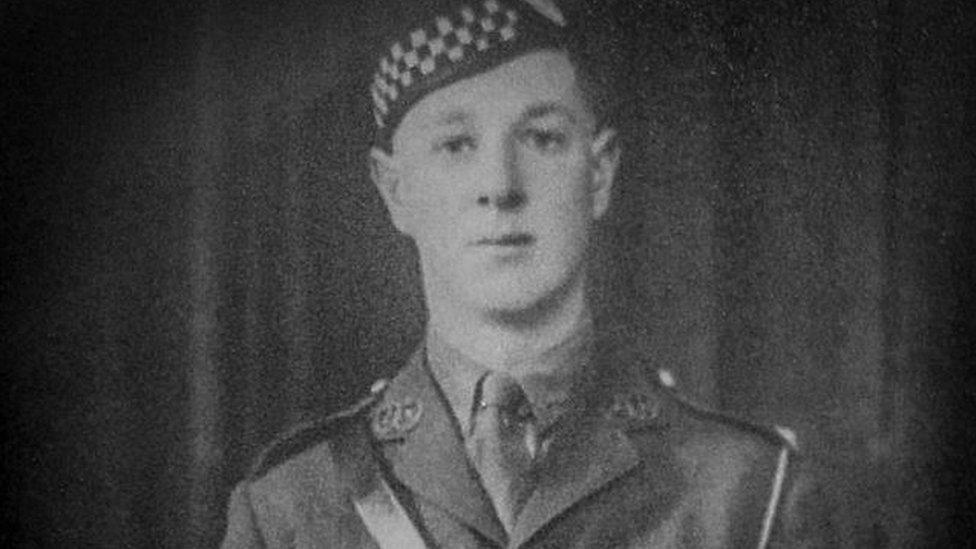
Capt Philip Ayton was fatally wounded by a mine while scaling cliffs in Jersey
On 27 December, German forces on another Channel Island were targeted as part of Hardtack.
Sark, smaller than Jersey and home to a German-speaking feudal leader, had been occupied along with neighbouring Guernsey in June 1940.
In 1943, eight commandos were attempting to scale the island's steep cliffs for the second time in 48 hours.
Armed with a rudimentary map, Sgt Andre Dignac, a Frenchman nicknamed Tarzan because of his climbing ability, led the group up the cliffs successfully under cover of darkness.
Next, they encountered a minefield, and attempted to navigate their way through it.
But a mine was triggered, instantly killing another French commando, Cpl Robert Bellamy.
Sgt Dignac was also wounded by an exploding mine, and died shortly after.
The commandos attempted a retreat, escaping through the pitch black, with mines detonating around them.
Three others were injured, but they made it out of the minefield to their motor gunboat and back across the Channel.
Both Sgt Dignac and Cpl Bellamy were buried in a small military section of Sark's cemetery on 30 December.
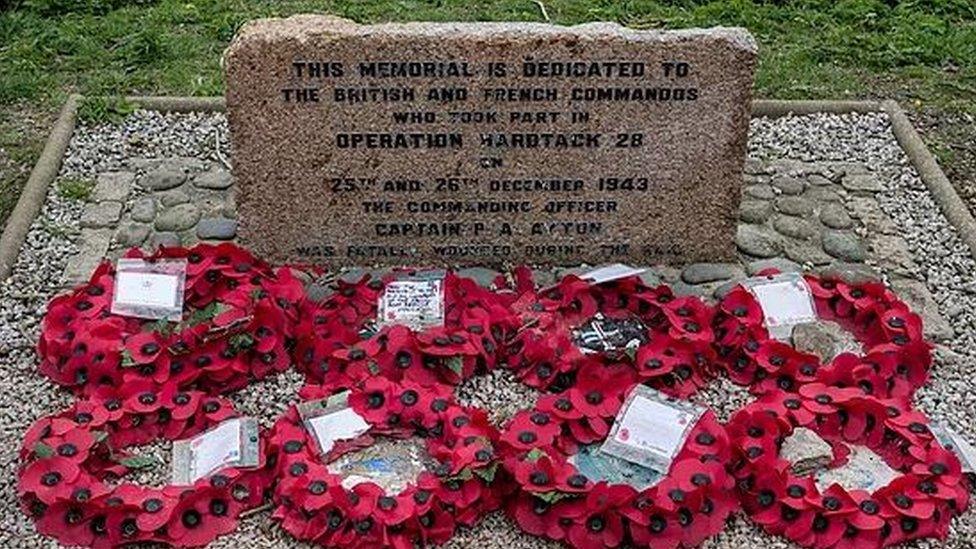
A memorial has been erected in Jersey to the commandos who took part in the 1943 Hardtack raid
In January 1944, another raid on the islands was cancelled, this time to Herm, leaving a death toll of three in the aborted island raids.
At Wassenaar in occupied Netherlands, 10 commandos involved in a Christmas Eve raid near Gravelines in northern France were also killed.
With the exception of the Quinéville raid, it is hard to imagine that the Christmas operations could be deemed a success, but, in the context of World War Two, historian Nick van der Bijl said it was possible they helped "keep the Germans guessing".
"The Second World War was a total war," he said.
"While it is not known if the planners [of the raids] discussed the risk of reprisals, no doubt the risk of German retaliation would have placed in the context of the invasion of Europe."
- Published11 June 2018
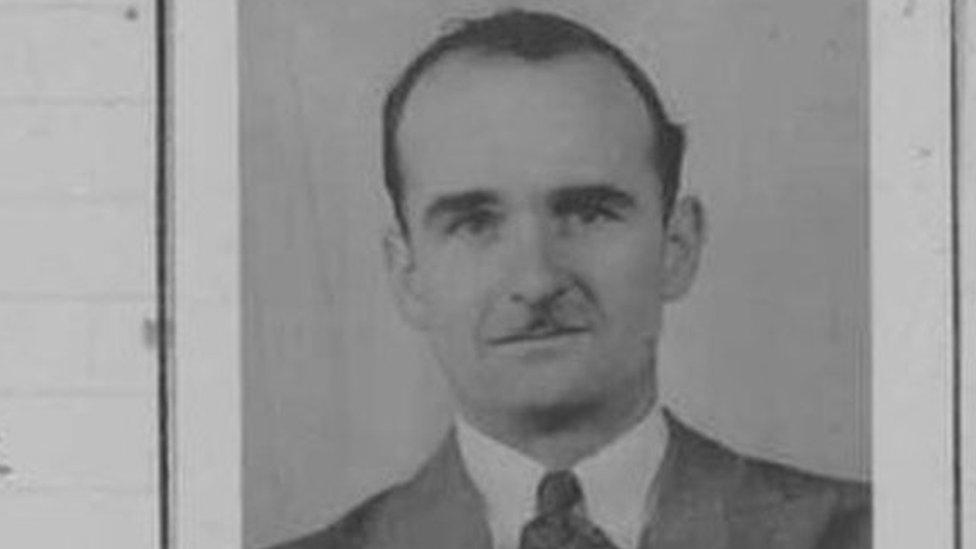
- Published9 May 2018
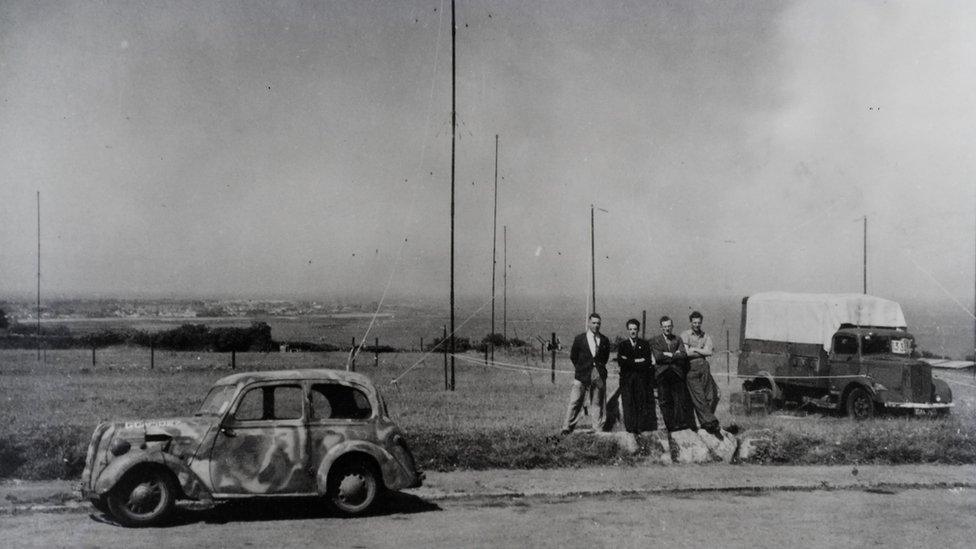
- Published2 February 2018
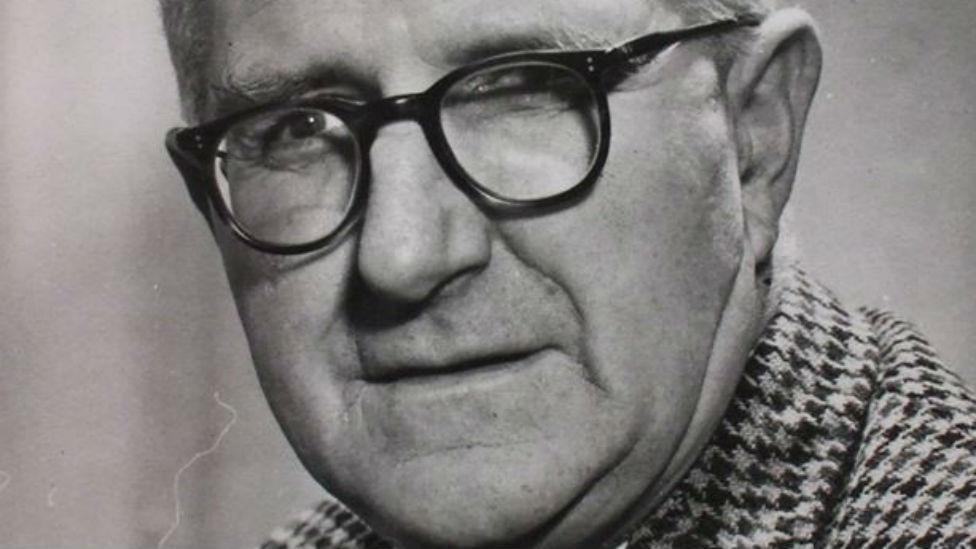
- Published20 October 2017
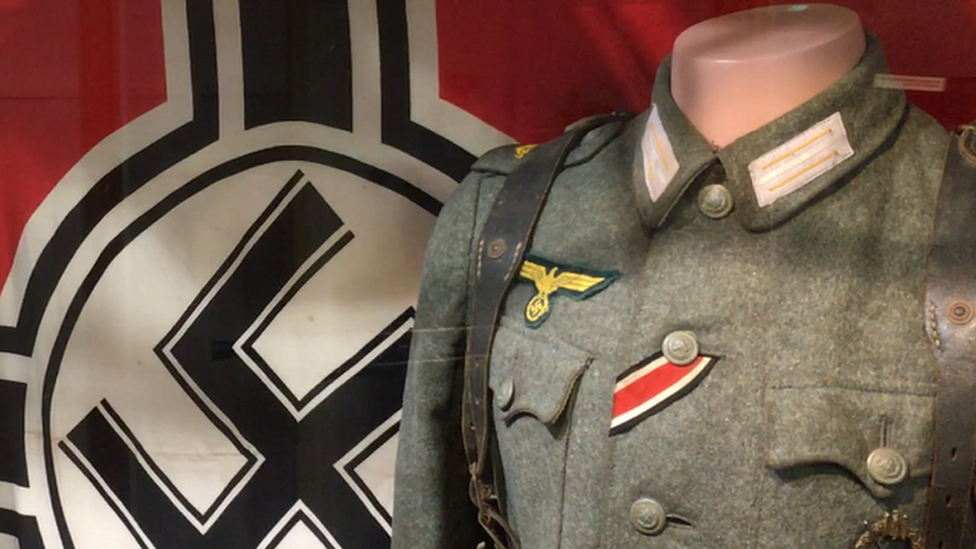
- Published28 January 2017
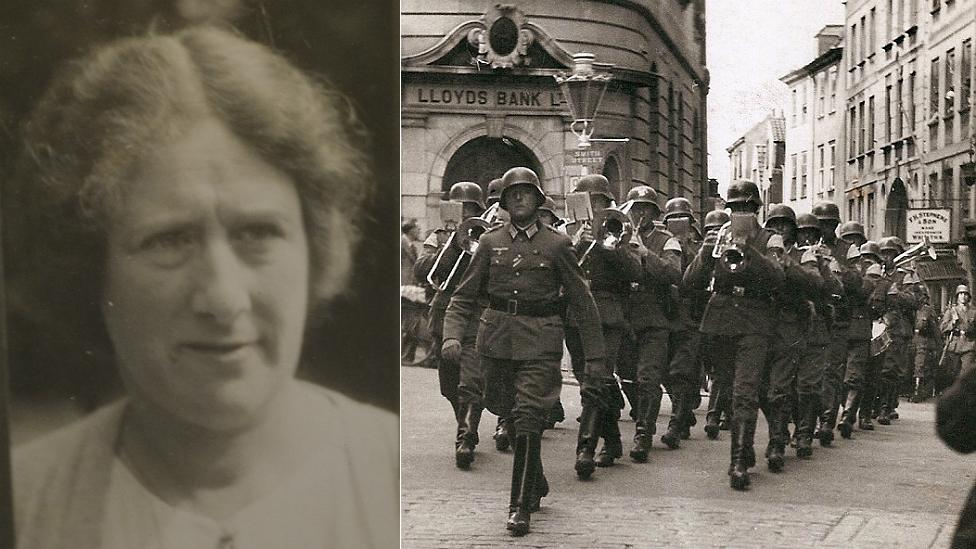
- Published6 May 2016
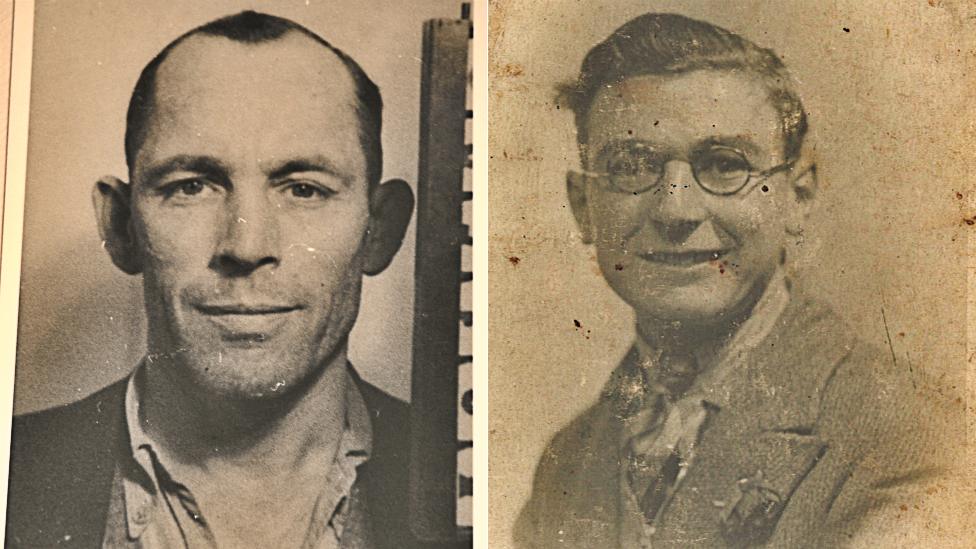
- Published3 October 2014
